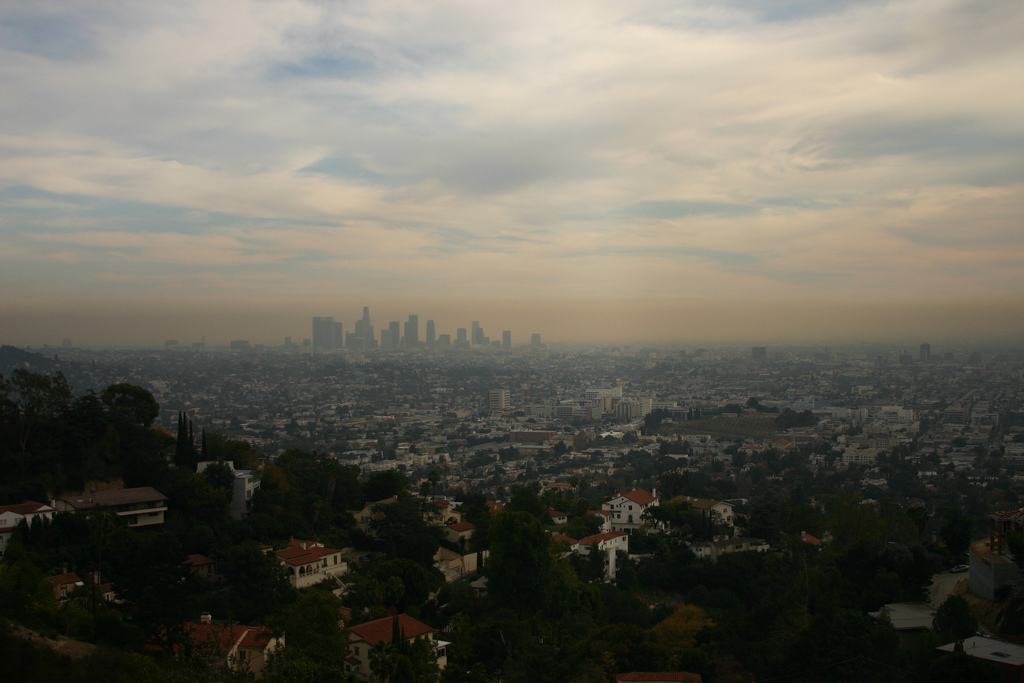Los Angeles wants to show the possibilities of zero-emissions transportation when the world arrives on its doorstep for the 2028 Olympics.
This week, the Los Angeles City Council revealed its goals for the Games, and took a significant step forward on its Zero Emissions 2028 Roadmap, by naming several partners in the project.

Smog over Los Angeles, courtesy Flickr user steven-buss
The roadmap sets percentage targets for electric vehicles by the time the 2028 Olympics open:
- 20 to 45 percent of private cars
- 50 to 100 percent of shared cars
- 80 to 100 percent of buses and all new buses
- and 25 to 50 percent of delivery trucks.
The plan also calls for 130,000 new public charging stations, of which the first few Level 2 Chargepoint stations have already been installed on streetlights downtown. The city plans to install another 150 such chargers by next June.
"Access to charging is everything," says Los Angeles Mayor Eric Garcetti. "If we want our cars to be electric, our buses to be electric, our trucks to be electric, we've gotta find a place to charge. We already have these wired. They're ready to charge cars without having to put a lot of work into them.
"The revolution is coming," he says. "I think there will be a day in which the gas car will be a collector's edition, but the standard car will be an EV."
CHECK OUT: LAPD's unused electric cars gather dust sitting in garage, but why?
The Los Angeles Cleantech Incubator (LACI) convened the new partnership. Its president and CEO, Matt Petersen, told Fast Company, "L.A. is known as the car capital of the world, and really the epitome when you think of a city with traffic. With the Olympics arriving in 2028, in 10 years, we really believe that L.A. and the region needs to lead by example."
LACI plans to release a second phase of the roadmap next year to drill down into specific steps to achieve each goal.
The partnership has dedicated $343 million from Southern California Edison to provide rebates for electric cars and charging infrastructure for trucks, and it wants to spend another $760 million to support public charging for electric cars.
Other partners in the project include BMW, Chinese electric bus manufacturer BYD, charging networks Greenlots, Tesla, and California State University at Northridge.












